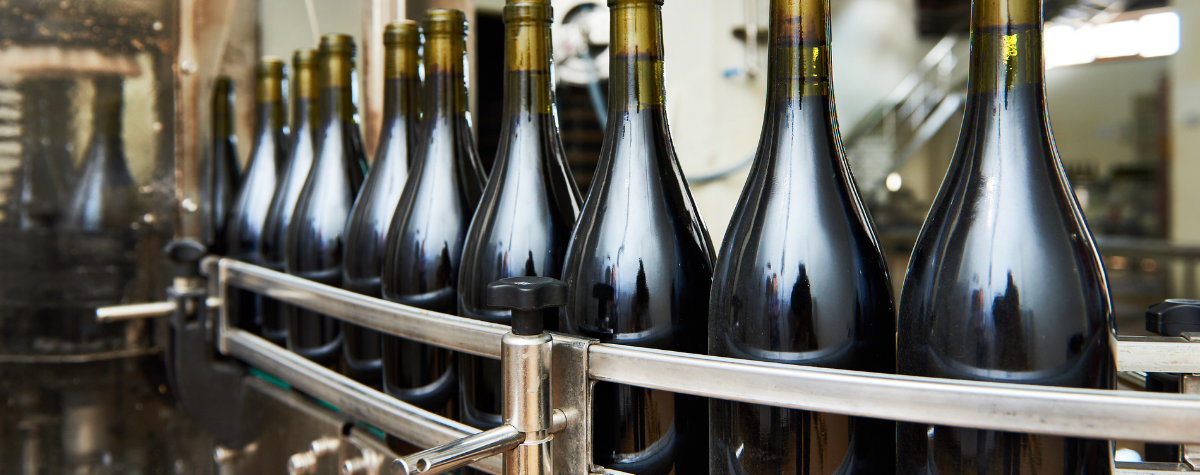That’s according to research by industry body the Sustainable Wine Roundtable (SWR). Its research lead, Dr Peter Stanbury, gave an online presentation last week in which he told wine producers: “If your company thinks bottle weight is the number one factor, fire your marketing department.”
He said SWR’s research found that the much-touted perception that consumers associate heavy glass bottles with higher wine quality is overstated – and that there are a growing number of examples of highly successful quality wine brands using lighter weight bottles.
The SWR’s research also shows that switching to lighter bottles is relatively simple. Discussions with glassmakers and bottlers established that minor adjustments to bottling lines and packing can ensure that lightweight bottles are just as robust in use as their heavier counterparts. One of the keys, Dr Stanbury found, is ensuring the lighter bottles are well designed, with even distribution of glass and special attention to the points on the bottle that make contact with other bottles and filling equipment. The easiest win, he said, is to do away with the punt in the bottom of the bottle.
Interestingly, his talks with bottle manufacturers found zero resistance from them to lighter bottles, as they are keen to retain glass’s supremacy over alternative wine packaging such as bottles made from recycled plastic, cans and bag in box.
Leading retailers sign up to Bottle Weight Accord
Dr Stanbury made the pronouncements during an online meeting to announce that leading wine retailers have reached an accord to reduce the average weight of 750ml still-wine bottles from 550g (about 1,300g full) to below 420g (1,170g full).It’s an important move because most research indicates that the glass bottle contributes between a third and a half of wine’s total greenhouse gas emissions.
The retailers who have signed up to the accord include Lidl GB, Naked Wines UK, Virgin Wines, The Wine Society, Laithwaites and Waitrose from the UK, the USA’s Whole Foods Market and Naked Wines USA, and Sweden’s Systembolaget AB. Collectively, they sell more than 250m bottles of wine a year. The 25% drop in bottle weight promised by them will deliver carbon savings of more than 23m kg per year, the SWR estimates.
Wine journalist Jancis Robinson, who has long advocated the need for lighter bottles, welcomed the accord: “I’ve been talking about this for so long. Lighter bottles is an easy win for the wine sector to reduce its carbon emissions. It is very exciting that the SWR has produced an evidence base to demonstrate how change can happen, and for this accord to push that forward in practice.”
During the meeting, she made a few interesting points about lighter bottles and the accord:
- “From where I sit, seeing wines from all over the world passing across my table and visiting tasting tables, I think the message is really getting through, which is thrilling.”
- “It is terribly easy to join it (the accord) – you just have to contact Sustainable Wine Roundtable and take it from there.”
- “Just one tiny word of warning – I’ve been banging on about this since 2006, so I am engaged with the detail of it – I note that this bottle weight aim is all about the average weight of bottles and I do hope in the future it’s not going to be the case that retailers allow all expensive wines to come in heavier bottles thereby promulgating the erroneous notion that there’s a direct correlation between bottle weight and wine quality. I hope that the retailers will be able to persuade quite a lot of producers of more expensive wines of the virtue and, I think increasingly consumer-appreciated virtue, of using a lighter bottle.”
Retailers who have signed the accord aim to achieve the 25% reduction in weight in the next three years in three stages:
- Removing as many of the heaviest bottles as soon as possible;
- Light-weighting the bottles of own-brand wines by the end of 2025;
- Collaborating through SWR to work with producers of branded wines.
The SWR will monitor the retailer’s progress by charting the average bottle weight by volume sold every six months.
SWR is also working with other parts of the supply chain to facilitate this move, including bottle suppliers and those setting up bottling lines.
Dr Stanbury says the accord “demonstrates what can be achieved through collaboration in a notoriously fragmented business. Not only will it help these companies meet their own ESG goals, but it will also ensure they are well placed to meet the extended producer responsibility regulations on packaging waste disposal coming into force in the EU, the UK and elsewhere”.
Other initiatives
This is just one of the initiatives in which SWR is involved. The SWR is also looking at light-weighting sparkling wine bottles, ways to help producers and retailers make better choices on alternative packaging, and evaluating the potential benefits of bulk shipping.“I hope this is the start of something truly transformational,” commented Dom de Ville of The Wine Society, calling on wine businesses all over the world to join the scheme.

 English
English French
French







.png)


